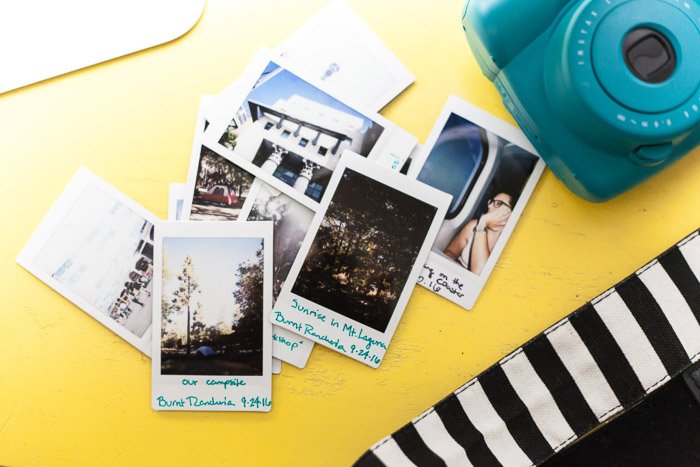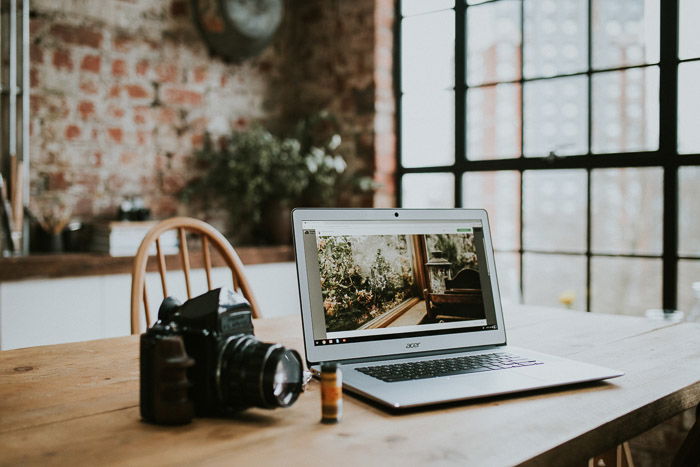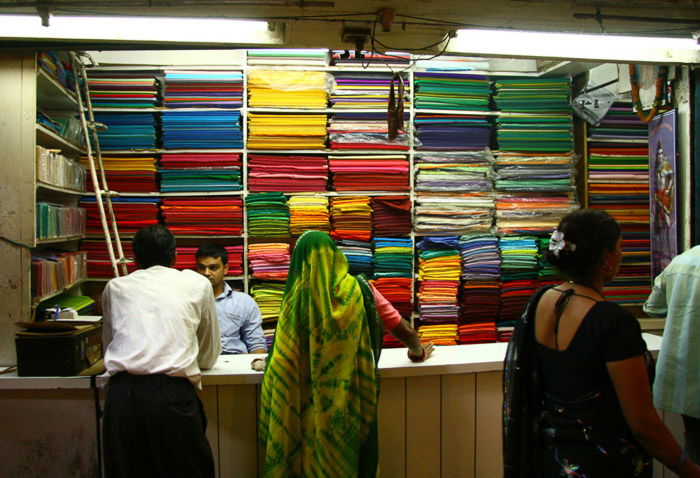This article has everything you need to know about starting your photography business. From making a plan to building a network. [Note: ExpertPhotography is supported by readers. Product links on ExpertPhotography are referral links. If you use one of these and buy something, we make a little bit of money. Need more info? See how it all works here.]
Create a Business Plan to Start a Photography Business
When it comes to starting your photography business, you need to start small. You’ll want to make a full business plan before launching yourself out into the world. Even if you’re not going to be seeking funding from banks, going through a business plan is essential. Creating a full photography business plan can be daunting. So start by laying out basic ideas. These should be of what you envision. This can be in the form of a vision board, a bullet point list in your journal. Or even a constantly-evolving Google doc that you update. As you think about what you want for your new business, consider the following topics:
Structure
Do you want this to be a small one-person operation? Or do you want to scale this business to have a team and several studios? Do you have partners that you’re going to go into business with? If so, what sort of legal structure do you think you’ll want?
You can answer these questions in part through your long-term life goals. You may not want to have employees or large-scale growth. This means that you may consider remaining a sole proprietor. You might want a business that involves training a team because you want to be hands-off. If this is true, then you’ll want to consider a structure that allows for growth such as an LLC or S-Corp. This is viable when starting up your business in photography. Consider also that you may want to start as a sole proprietor. But then convert to a Corporation once you hit a certain financial milestone. A financial or tax adviser should be able to help you. They can determine when it’s beneficial to switch from one structure to another. The idea is to start thinking about what sort of long-term goals you have for your lifestyle. And how to build a business that puts you on that path. This is one of the most important points when it comes to how to start your own photography business.
Create a General Business Description
Are you going to focus on weddings and engagements? Or will you specialise in product and food photography?
Target Market
Who do you serve? Are you targeting businesses that create construction materials? Or are you reaching out to the mom who wants photos to preserve her family’s memories? Who is your competition? What price points does your target market allow for? How will you stand out from the others in this niche?
Finances
Do you need a business loan to start up so you can rent a studio space or do a complete photo studio setup? Are you working only with cash from your savings account? How much investment will it take to get things going?
You might be quitting a full-time job. Consider how long it will take before you start getting profit from your business. This will tell you what sort of financial cushion you need to be able to pay the bills in the meantime.
Define a Long-Term Vision
This is where you set checkpoints for your long-term goals. If your goal is to create something that becomes almost passive for you, what major goals can you set along the way? This might mean that you begin with one studio and one assistant. And then add a second lead photographer as your team grows. You also have to create financial goals to get you where you want to go. This might be a point where the other lead photographers run the operation. And you manage from off-site.
Consider Diversified Income Streams
These days, it’s important to think of several income streams. Yes, you’ll do photo shoots for your clients. But you might also teach in-studio classes for budding professional photographers. Or you might create courses that will sell online and become a passive income stream. If you work in a seasonal area, such as wedding photography, this will be a lifesaver in those quieter months.
Settle on a Business Structure to Determine Paperwork
The type of business structure you decide on determine the paperwork needed to make it legal. A sole proprietorship is the easiest to set up and get started. But it’s also the most at-risk. Your personal assets are liable for confiscation in cases of liability lawsuit issues. Partnerships are also quite simple to set up, but personal assets are again at risk. Not ideal when you are starting a photography business. Corporations and LLCs (Limited Liability Company) take more paperwork to set up. And there are fees to maintain them every year. But personal assets are not at risk. There can be tax advantages to this setup if you’re past a certain income threshold. In the United States, the SBA is a great resource for questions for paperwork and legalities. National resources will vary by country. If you’re not in the U.S., then do an online search to find a resource closer to home. This is where having solid relationships with others is important. Fellow professional photographers, lawyers, or advisers can come in handy. They can be great sources of information and point you in the right direction! While you’re finding resources, gather information on what paperwork you need. Each area will need something different to register as a business. As business owners, you may also need a business license and a bank account.
How to Name Your Business
This may seem like a small step, but naming your business is actually quite important! It is the first thing people see when starting a photography business. Now you’ve thought about what you want your business to look like long-term. That should give you some guidance on the name. If you are not looking to scale your business, consider working under your own name. You might want to scale the business to include other team members or various locations. This is also possible. You can establish what’s called a fictitious business name. Such as “Sweet Dreams Photography”. If you’re located in the U.S., you’ll want to file a fictitious name filing with your county. This ensures that nobody else is using that name. And it lets the county know that you are the individual behind this business entity. There are endless places to gather inspiration. These even include creative business names. And sometimes all it takes is looking around your daily world and seeing the details to spark an idea. Sometimes looking at successful photographers or other local photography business names can trigger an idea for your own!
Taxes
Nobody likes to think about taxes, but it’s important to keep them in mind from early on. The business structure that you chose will play a large role in calculated taxation. Be sure to ask about this when speaking with a local resource. If you’re doing a sole proprietorship or partnership, set aside tax from each transaction. This way, there are no shocks when tax time comes around. If you’re an LLC or some type of corporation, you’ll have things like payroll taxes to consider. And taxes are different. For these structures, I recommend that you reach out to a financial expert. They handle your accounts so that you cover all your bases. They will also help you take advantage of all possible tax benefits.
Build Your Photography Marketing Plan
So now you have your business registered. You’ve also thought about your goals and structure. To top it all off, you’ll have a flashy new business name. It’s time to plan out your marketing. The information you gathered for your photography business plan will help. This includes everything about your target market and local competition. Marketing tactics come from this background information. Consider where your target client is – are they on Instagram, or do they have no idea what social media is? Do they find service providers through word of mouth, or do they rely on Yelp reviews to guide them? Knowing where your target client is is important. It will help determine where you should focus your efforts. If your diverse income streams involve them, you may look into how to start a photography blog or podcast. And then target that blog or podcast to your ideal client. Once you have an idea of what type of marketing reaches your client, it’s time to plan it out. For example, if you’re trying to reach busy moms, then you may consider being a contributor to a mom blog in your area. Or donating your services as a sponsor to a large family event in your community. Whether you are planning a large or small business, you’ll need marketing materials. These will help you to reach out to those potential clients. A successful photography business for a wedding photographer, for example, needs people skills. This is on top of professional photography experience. The right tools are important, so many sure you have them. If you have kids of your own, build relationships with other parents. Try your kids’ schools or activities to find them.
Take Your Time When Building a Photography Business
This is the biggest advice to keep in mind on how to start your own freelance photography business. Take things one day at a time and be patient. Building true relationships and growing a business takes time and hard work. You may not think that any growth is happening. But focusing on your clients, goals, and small steps towards those will pay off. Be sure to seek out a community of your own for support throughout this rough journey! Support from others who understand the long path of entrepreneurship is vital. Continue doing what you are doing. Focus on making your clients happy while reaching out to new people.
Conclusion
Many of you ask ‘How do I start my own photography business?’ Taking your photography from a hobby to a business is a big move, but it doesn’t need to feel like one! It’s important to think long-term, envision your goals, and then plan according to that. Be sure to use your local resources to help guide you through the legalities. After all, that’s what the public officials are there for. Be patient with yourself as you start your photography business. And remember that you have the power to change direction at any time. Now you’re ready to start your business, check our posts on photographer business cards ideas or how to become a professional photographer next! You can also try our Quick Capture Cheat Sheets for your next shoot!










